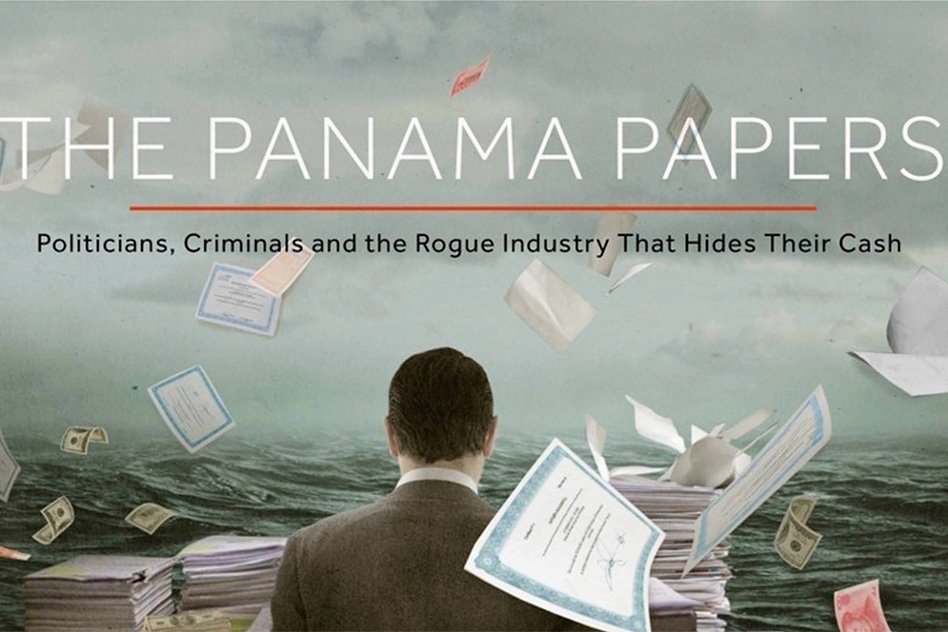The week of 10 April, 2016.
Mass grave unearthed in Palmyra, Syria.
Following the retaking of Palmyra by the Syrian Army on 27 March, soldiers uncovered a mass grave of 42 people who had been killed when the Islamic State held the city. 24 of the victims were civilians. The grave, discovered on 2 April, enunciated yet again the brutality of the terrorist group.
Panama Papers, Panama.
On 3 April, a 2.6 terabyte stack of 11.5 million confidential documents was leaked to the public by a Panamanian law firm named Mossack Fonseca. The leaked files contained information of offshore holdings of 140 politicians, 12 current and former world leaders, 214,000 companies and personalities from over 200 countries. The Panama Papers is the largest leak of insider information in history. The leak was the result of a year-long investigation by the International Consortium of Investigative Journalists (ICIJ). The ICIJ employed 400 journalists in 76 countries to analyze 40 years’ worth of data. The ICIJ has promised to reveal the full list of companies involved in May 2016.
[https://panamapapers.icij.org/20160403-panama-papers-global-overview.html]
[https://www.facebook.com/logical.indian/videos/899946073468446/]
Political fallout of the Panama Papers, World.
Following the release of the Panama Papers, where it was revealed that 12 current or former world leaders and 140 other politicians held questionable offshore holdings, there was mass outrage in the respective countries. The first casualty was the Icelandic Prime Minister – Sigmundur Gunnlaugsson – who was forced to resign on 5 April (only two days after the leak) due to protests. The leaks revealed that Vladimir Putin’s close aides made millions from offshore dealings, linking the Russian President to these dealings. Putin’s spokesman braded the leaks as an attempt to undermine Putin ahead of the Russia’s parliamentary elections this September. UK Prime Minister David Cameron, after days of flip-flopping, finally confirmed a direct link to the offshore tax haven on 7 April. The past week there have been growing calls for Cameron’s resignation even as Argentina, China, Ukraine, Saudi Arabia, Pakistan and many other countries’ top leaders have been implicated by the Panama Papers.
[https://thelogicalindian.com/news/panama-papers-reveal-names-associated-to-the-current-government/]
Mississippi religious freedom bill, United States of America.
To quote Steven Van Zandt, anti-LGBT laws are “spreading like an evil virus” in the US. In 2016 alone, more than 200 anti-LGBT bills have been proposed in the US. Following North Carolina’s law passed last week which prevents cities from enacting anti-discrimination measures, the State of Mississippi passed what is being called the most aggressive anti-LGBT legislation in the US. The law, which aims to safeguard “religious freedom”, allows businesses, individuals and religious organizations to deny service to LGBT people, single mothers and anyone who offends a person’s “sincerely held religious beliefs”. The law was passed on 5 April and drew widespread condemnation.
[https://thelogicalindian.com/news/us-supreme-court-rules-same-sex-marriage-is-legal-across-the-united-states/]
[https://thelogicalindian.com/story-feed/exclusive/lgbt-community-rights-where-does-india-stand/]
Wisconsin primary, United States of America.
US Presidential candidates faced a crucial test in the State of Wisconsin which held its primary on 5 April. The primary was to serve as a barometer of public opinion following a week of heated rhetoric by candidates of both major US parties. Frontrunners Hillary Clinton and Donald Trump suffered major defeats in the State to their party rivals – Bernie Sanders and Ted Cruz respectively. This, as the Presidential nominating contest heads to the very important New York primary which will be held on 19 April and will most likely seal the fortunes of the candidates.
Venezuela energy crisis, Venezuela.
The Venezuelan Government announced on 7 April that every Friday would be a national holiday for the next 60 days. This was to help combat the severe electricity crisis faced by the South American country. Venezuela relies heavily on hydroelectric power generation and a prolonged drought has affected its energy generation. The latest in the efforts to deal with the shortage included the President requesting women to stop using hairdryers.
Pope Francis releases document on family values, Vatican City.
The Vatican released a landmark papal document on 8 April titled ‘Joy of Love’ in which Pope Francis calls for, among other things, greater acceptance for divorced people and those in same-sex relationships. It was hailed as a “paradigm shift” for updating the Church’s stand on family issues.
North Korea’s nuclear programme, North Korea.
After announcing in December 2015 that it had successfully tested a miniaturized hydrogen nuclear device, North Korea stated on 9 April that it tested a long-range rocket engine capable of targeting the United States with nuclear strikes. South Korean and US defence officials, however, said there was no credible evidence to back North Korea’s claim. Also, on 8 April, 13 North Korean restaurant workers defected from North Korea, applying for asylum in South Korea. The workers – 12 women and a man – were admitted into South Korea on humanitarian grounds.
Egypt and Saudi Arabia settle meritime dispute.
On 9 April, Egypt and Saudi Arabia agreed to set up a $16 billion investment fund and settled their maritime dispute over two islands in the Red Sea. The two countries also announced a bridge across the Red Sea to boost trade. All in all, 17 agreements were signed to enhance bilateral ties, another sign of the increasing cordiality between Saudi Arabia and Abdel el-Sisi, Egypt’s President since 2014.
Taliban leader proposes talks with the US, Afghanistan.
Senior Taliban leader Mullah Qayum Zakir proposed a 12-point proposal on 9 April which included a suggestion to hold peace talks with the Afghan Government, the US Government and other Western nations. However, the Taliban has denied receiving any proposal from Zakir and still rejects participation in any talks with the West.











